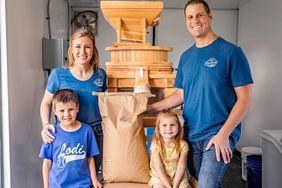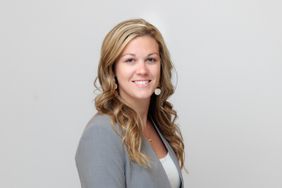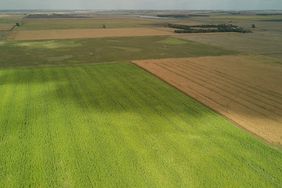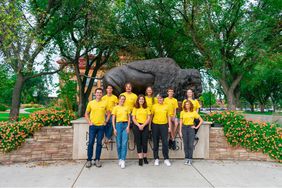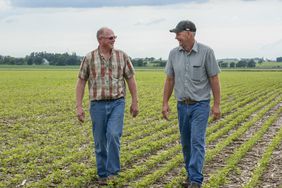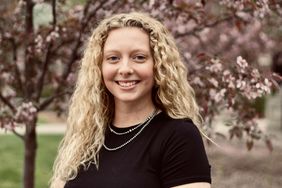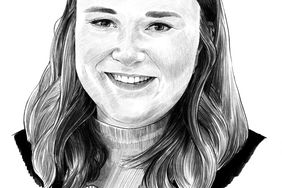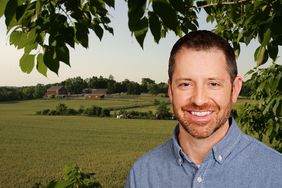:max_bytes(150000):strip_icc()/Untitled-3-add5da10ca1d4beb8fa75334543c6752.jpg)
Getty
For Jasmin Choate, a full-time job and new career path may, on its surface, look unconventional. That’s just the way she likes it. That’s because her introduction to ag was anything but conventional.
Choate grew up in Lyons, Kansas. But her central Kansas upbringing didn’t center around agriculture. “I grew up knowing little about animals or agriculture,” she says. “We didn’t even have a pet.”
Yet the strong agricultural community did interest her, and it was during high school and working with her FFA chapter that she set the groundwork for her future career. “I began to participate in a lot of leadership and competition events, from public speaking to dairy cattle judging,” she says. “It was through fearlessly jumping into these opportunities that I grew as a person and discovered the industry I was passionate about.”
It was then she had her first exposure to the dairy industry, taking a part-time job on a dairy farm. That sparked her interest in livestock and animal science, and ultimately it pushed her to pursue an animal science degree at Kansas State University (KSU), with an emphasis on communications and marketing.
During her senior year at KSU, Choate was selected to be part of Merck Animal Health’s Future Talent Rotational Program. The 18-month program had her working in three areas of the company: six months with the commercial livestock team, six months at a manufacturing site, and six months with the research and development team.
“I was able to work with the various teams, lead projects, and gain a deeper understanding of the entire animal health business,” Choate says.
Open Mind-set
This exposure was invaluable. Choate says the program allowed her to gain experience in different disciplines. “I came into the program with an open mindset,” she says. “In receiving cross-functional business exposure, I was able to discover the various career paths the animal health industry has to offer. I connected with so many people across the company.”
One of those connections was in MerckAnimal Health’s technology solutions portfolio, which included Vence, an innovator in virtual fencing for rotational grazing and livestock management.
With her internship program wrapped up, Choate is now a customer success specialist with Vence.
“I first learned about Vence during the internship program, and the technology aspect really attracted me,” she says. “One thing I liked about the technology space and Vence is that I felt it mirrored my personality. It’s a revolutionary technology that is nontraditional. That’s like me. I came from a nontraditional background, and I fell in love with the industry. I am part of something new and exciting that is changing the industry.”
Choate says keeping all her options open, listening, and learning helped her make the most of her internship program and solidify her career path.
“I think the biggest thing I’ve learned from this experience is that you can’t go into a program and silo yourself,” she says. “When you are at a company, look at all the company and what they have to offer. Don’t be afraid to ask questions and explore new opportunities. Expand your horizons as much as you can.”
Merck company spotlight
One of the tenants of the Merck Animal Health internship and co-op programs is to identify and develop individuals to help move the company forward. Shannon Kellner, vice president, U.S. Livestock Business, MerckAnimal Health, explains that the search goes beyond what would be considered the traditional pathways. “As we grew as a company, we were entering different markets, and we needed to change how a career in animal health was viewed,” he says. “In the past, people thought you had to be a veterinarian to work in the animal health field. That simply is not the case anymore.”
Kellner explains that the company looks at a variety of backgrounds and experiences to fill roles within the company. “We started to look at how we could expand our talent pool to bring a wider variety of skills into our business that would help us grow as a company.”
Merck Animal Health hires about 25 interns and co-op positions across the country. These full-time paid positions are available in a variety of business functions within the company. Interns are assigned for 12 weeks, and co-op opportunities are assigned for up to six months. Positions are available throughout Merck’s business units in locations throughout the country, including the company’s corporate headquarters in New Jersey, manufacturing facilities in Nebraska and Kansas, public policy and government relations offices in Washington, D.C., as well as field sales offices located throughout the United States.
Positions vary from year to year, but areas where interns are typically hired include:
- Communications
- Companion animal - field sales and marketing
- Distributor initiatives
- Global marketing
- Animal welfare
- National/key accounts
- Learning and development
- Livestock (swine, cattle, poultry, aqua) - field sales and marketing
- Veterinary and consumer affairs
- Retail
- Strategy and business channels
- Public policy and government relations
- Business development and licensing
- IT/digital/analytics
- Technical services
In addition to the commercial business, Merck Animal Health typically has three to five research and development interns and three to five manufacturing interns.
Over the past five years, Merck Animal Health’s significant investment in research and development, manufacturing, and acquisitions — mostly in the technology space — has diversified the company’s livestock business.These acquisitions and investments have focused on connected technology, including animal identification, traceability, and monitoring products, offering a high degree of technological sophistication. There are endless opportunities for creativity and growth as well as new and exciting career opportunities in the animal health industry, particularly in the technology space. “Technology roles are critical to our overall strategy and enable us to deliver on the customer experience,” Kellner says.
“One of our biggest ‘aha’ moments is that our interns discover that while we are in the traditional animal health space, we need accountants, lawyers, data scientists, you name it,” Kellner says. “That’s not unique to our company. Our entire industry is looking at a wider array of talent to fuel our future needs.”
